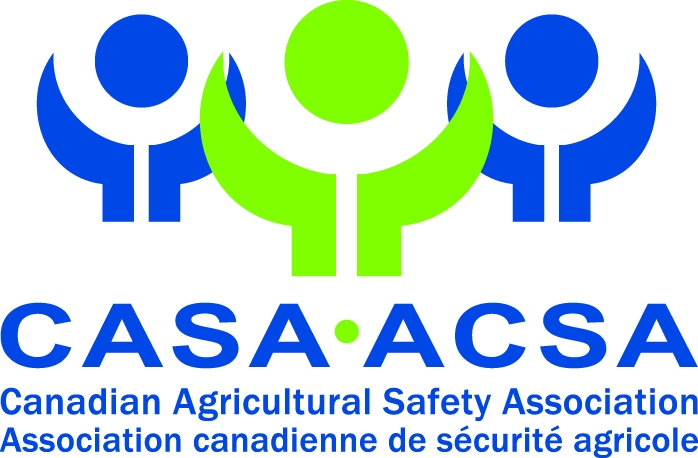
Protecting your health for the future
By Canadian Agricultural Safety Association
Features Business & Policy Farm Business Business/Policy Success in AgricultureIt’s important to talk about how exposure to dangers in your environment can affect your health, weeks, months or even years down the road.

Sept. 15, 2016 – When we talk about safety, we often talk about immediate consequences. For example, getting too close to a running power take off can result in immediate, and often catastrophic consequences. It’s important to talk about preventing these life-altering incidents, but it’s also important to talk about how exposure to things in your environment can affect your health, weeks, months or even years down the road.
We make decisions daily that can affect our future selves. We’ve all taken a minute to either thank or criticize our past selves for things we’ve done or not done. Why not set yourself for a healthy future?
There are environmental exposures that occur on and off the farm that can affect our hearing, our respiratory function, and our bones and joints This advice isn’t meant to capture all of these hazards, but is to get you to start thinking about what you’re exposed to.
One of the most wonderful human functions is hearing. The boom of a well-placed slap shot, the hum of a finely-tuned engine, and the pure laughter of a baby are all small joys that we enjoy when our hearing is optimal. Unfortunately, many people experience hearing loss due to noise exposure. This loss is entirely preventable. (If you’ve already lost some hearing – you can retain what you have.) But you have to make a commitment to make some changes. Here are some easy tips to protect your hearing:
- Recognize when you are being exposed to excessive noise. This isn’t always easy, sometimes you might not expect a task to be noisy, but if you can’t carry on a conversation with someone three feet away without yelling, it’s a good idea to remedy the situation
- Control excessive noise. Maybe you need a new muffler on that equipment?
- Create a noise barrier. Close the window to your truck or tractor
- Select the quietest tool or equipment to do the job.
- Lastly, select the best and most effective hearing protection for you. Ear plugs and ear muffs work only if you use them consistently and correctly.
Breathing is a good thing. On this, everyone can agree. Keeping our respiratory health in tip-top shape means being aware of the hazards that occur on the farm. Unfortunately, farmers and farm workers have the potential to be exposed to a tremendous variety of respiratory hazards. Some of the most common respiratory hazards include: grain dust, crop protection residues, waste and waste byproducts from insects and animals, and exhaust and fumes from equipment and tools. The health consequences from exposure to these respiratory hazards is long and complicated and varies in severity from mild to catastrophic. Keep these tips in mind:
- Decrease the generation of dusts and gases by improving management procedures or through engineering controls. An example would be reducing the distance the grain falls when unloading. A short fall means less dust.
- Remove any contaminants that are in the air. Have good ventilation!
- Use the right kind of personal protective equipment (PPE) for the job. Make sure the PPE fits, is comfortable and most importantly, wear it! (And replace it once it becomes dirty or worn.)
(These tips do not take into account confined spaces which are very hazardous and require extensive training and equipment to enter safely.)
Creaky bones, sore knees and hip and achy backs are all too common in the farming community. Farmers start out young and strong, but eventually all that repetitive lifting, kneeling, stooping, twisting and shoveling catches up resulting in conditions like arthritis, repetitive strain injuries, tendonitis, muscle inflammation and chronic pain.
- Try to vary your posture, especially when bending over or when your hands are over your head.
- Practice good lift hygiene. Lift properly and keep the load close to your body. Ask for help for heavy loads or use a mechanical solution.
- Use well-maintained, proper tools for the task. Let the tool do the work, not your body.
- Limit your exposure to vibrations. On older tractors, use vibration-dampening seat cushions. Take breaks from equipment that causes your body to vibrate.
It’s easy to forget that each thing that we do can affect our health in the future. Reminding ourselves that although we may not immediately feel the effects of bad decisions, it can damage our health and vitality in the future.
For more information about farm health and safety, please visit www.casa-acsa.ca.
Print this page